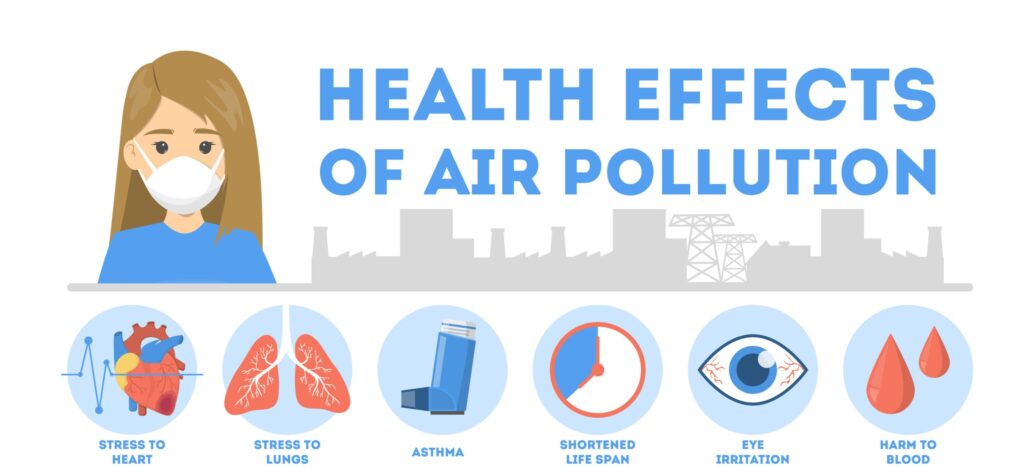Environment
Climate change – Air quality
Air pollution and climate change actions need to be considered together to make the most significant improvements in both areas. Sources of air pollution are very similar to the sources of greenhouse gases, in particular emissions coming from vehicles.
Air pollution has a big effect on both human health and the health of nature. It is estimated that over 28,000 deaths each year are because of air pollution. Within our District air pollution is also affecting the Epping Forest Special Area of Conservation especially because of queuing traffic on the roads that run through it.
Health effects of air pollution

The effects of air pollution include:
- Stress to heart
- Stress to lungs
- Asthma
- Shortened life span
- Eye irritation
- Harm to blood
Policies to improve air pollution and address climate change are becoming more in sync. Actions such as reduced burning of fossil fuels, support for uptake of cleaner modes of travel such as walking, cycling and electric vehicles, protection and expansion of green spaces and improvement of energy efficiency in commercial buildings and homes all help. By working together these not only improve the quality of the air for humans and nature but it also helps to reduce carbon emissions that contribute to climate change.
The Air Quality area of the EFDC website gives advice and shows the benefits of improving indoor air quality in your home.
Because air quality and climate change are closely linked, actions you can take to improve air quality can be found in other sections of this website especially the transport, home and natural environment sections. The most significant action you can take to improve air quality is to reduce the number of petrol and diesel car journeys taken.
